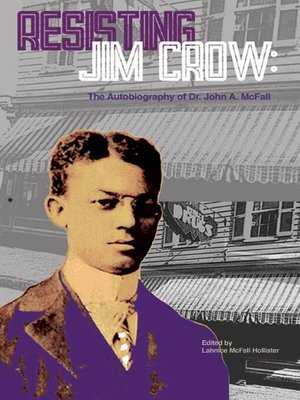
Sign up to save your library
With an OverDrive account, you can save your favorite libraries for at-a-glance information about availability. Find out more about OverDrive accounts.
Find this title in Libby, the library reading app by OverDrive.



Search for a digital library with this title
Title found at these libraries:
| Library Name | Distance |
|---|---|
| Loading... |
John McFall was born in Charleston, S.C. in 1878-the year after the disputed South Carolina gubernatorial election that marked the end of Reconstruction in South Carolina. He died in 1954-two months after the Supreme Court's landmark Brown v. Board of Education school desegregation case handed down on May 17, 1954. This volume contains Dr. McFall's complete and never before published manuscript, in which he eloquently reports on events between those milestones.
John McFall, the first of eleven children born to a Black couple in Charleston, was also among the first generation born in freedom in South Carolina. He witnessed the crippling of the economic strides citizens of African descent had made in the first decade after Emancipation. People of color were essentially designated second-class citizens due to being disenfranchised.
John McFall tells a story rarely told: how legalized segregation was infused into a southern city and more. This future pharmacist tells about growing up in a tightly-knit family; playing on Charleston streets and waterways; attending Charleston schools. As a student working his way through college in Philadelphia, John was told that his color barred him from jobs for which he was qualified. Upon earning a Doctor of Pharmacy degree and returning home, he encountered similar challenges faced by other Black Charlestonians. Being intelligent and law-abiding were not enough. He was male, and he was over twenty-one. But he was not white. Therefore, he was not entitled to even the common courtesy of being called Mister or Doctor McFall by any white person, whether man, woman or child. Dr. McFall insisted on this courtesy as he navigated the color line and the white power structure for himself and the Black community. His defeats and victories provide insight into Black agency occurring in Charleston and other urban areas with imbedded state-sponsored segregation.
While much has been written about the cruelties and the violence in the Jim Crow South, Dr. McFall's first-person account provides more "bricks" and "mortar" to assemble a more comprehensive view of our past.







